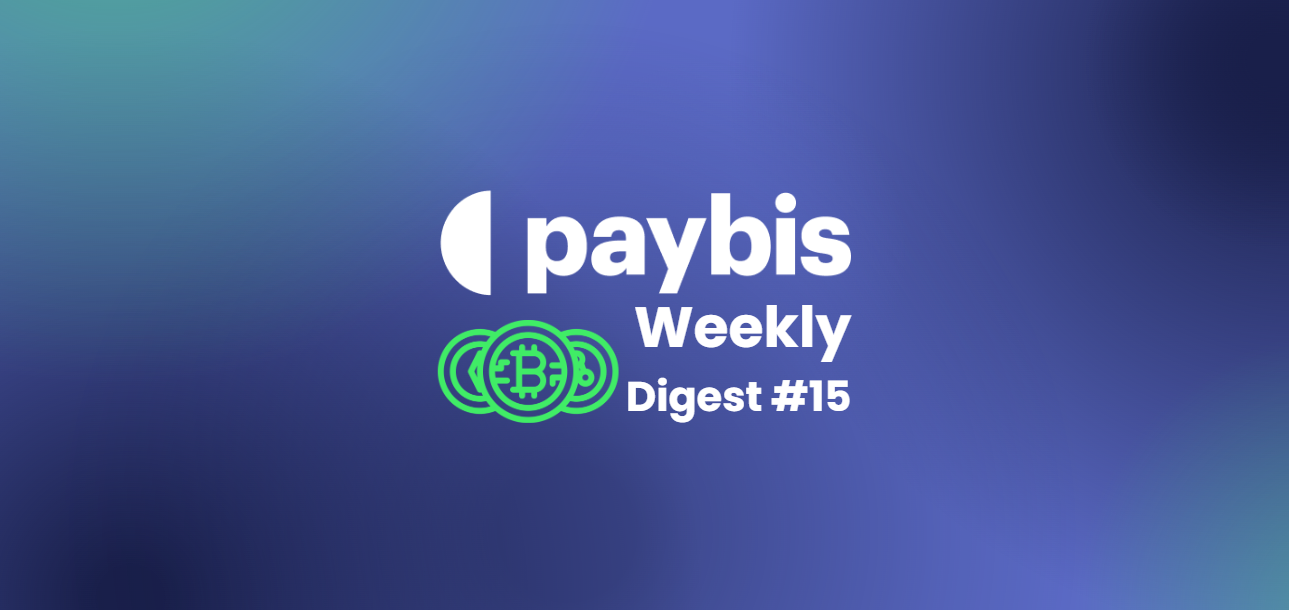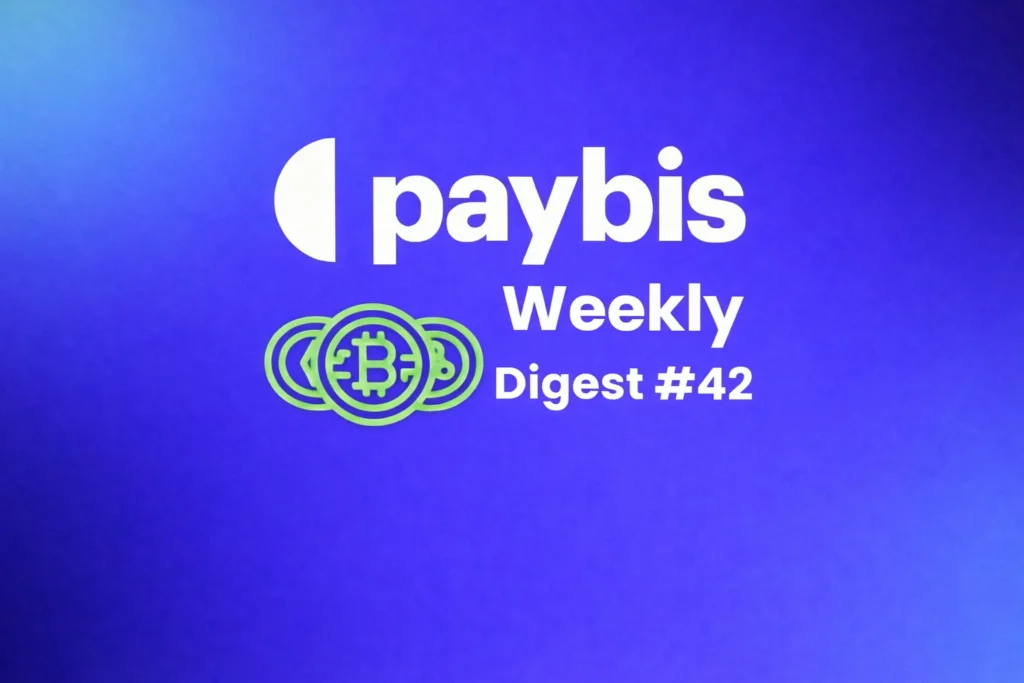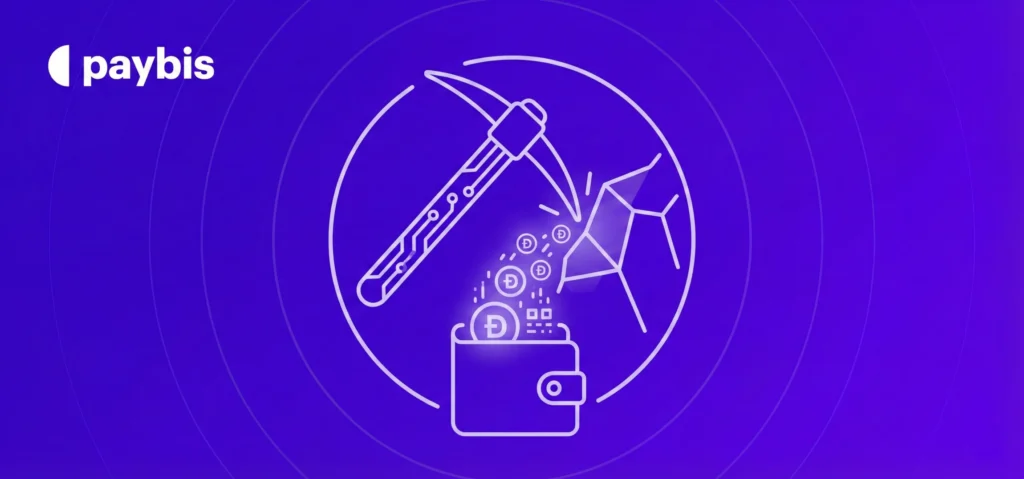Ethereum Gas Cap, KuCoin Scrutiny, Tether Moves, and DeFi Hacks
The crypto industry is facing another busy and turbulent week. Ethereum is moving forward with key upgrades, while Tether is increasing oversight on USDT use and reducing support for lesser-used networks.
At the same time, two major hacks have shaken the DeFi space, and KuCoin is under pressure due to allegations of non-cooperation with law enforcement. These developments reflect the sector’s ongoing struggle to balance innovation, compliance, and security.
Try out Paybis now to buy, sell, swap, and manage your favorite cryptos.
Table of contents
- Ethereum Proposes Gas Limit per Transaction
- KuCoin Accused of Ignoring Law Enforcement Requests
- Tether Invests in Crystal Intelligence to Track Crime
- GMX Exchange Suffers $42M Hack
- Tether Prints 1 Billion New USDT
- Kinto Protocol Exploited for $1.55M
- Ethereum to Integrate Zero-Knowledge Proofs
- Tether to Discontinue Support on Five Networks
- About Paybis
- Wrapping Up
Ethereum Proposes Gas Limit per Transaction
Ethereum co-founder Vitalik Buterin and researcher Toni Wahrstätter introduced EIP-7983. The proposal would limit gas usage per transaction to 16,770,000 units. This aims to reduce potential congestion and promote a more equitable distribution of gas across blocks. If accepted, the change could improve network efficiency and user experience. Discussions are underway in the Ethereum developer community.
KuCoin Accused of Ignoring Law Enforcement Requests
Blockchain analyst ZachXBT alleged that KuCoin has ignored multiple law enforcement requests. He said the exchange failed to act on orders to freeze stolen funds. These requests reportedly span several months. The lack of response raises compliance concerns and could lead to legal challenges. KuCoin has not yet issued a formal response.
Tether Invests in Crystal Intelligence to Track Crime
Tether announced an investment in Crystal Intelligence, a blockchain analytics firm. The goal is to strengthen its ability to detect and prevent the illicit use of USDT. Tether has faced criticism over the years for how its stablecoin is used in illegal transactions. This move shows its increasing efforts to collaborate with regulators. Tether continues to present itself as a compliant actor in the space.
GMX Exchange Suffers $42M Hack
Decentralized trading platform GMX was exploited in a major hack. The attackers stole $42 million using an undisclosed vulnerability. GMX paused operations to assess the damage and secure user funds. This is one of the most severe DeFi attacks in recent months. Investigations are ongoing.
Tether Prints 1 Billion New USDT
Tether minted 1 billion USDT on the Ethereum blockchain. The company said the mint is to replenish inventory for future issuance. These tokens are not yet in circulation. Tether regularly mints large batches to meet expected market demand. However, such activity continues to attract scrutiny from regulators and analysts.
Kinto Protocol Exploited for $1.55M
The Kinto protocol was hacked, resulting in $1.55 million in losses. The attacker exploited a smart contract vulnerability. Kinto has halted operations and is reviewing the breach. This incident highlights ongoing security risks in DeFi. User funds remain a top target for hackers.
Ethereum to Integrate Zero-Knowledge Proofs
The Ethereum Foundation announced plans to implement ZK-proofs on the Ethereum mainnet. These cryptographic proofs will enhance scalability and privacy. The integration could make Ethereum faster and more efficient. It’s a step forward in long-term network upgrades. No deployment date has been confirmed yet.
Tether to Discontinue Support on Five Networks
Tether will end USDT support on Omni, Bitcoin Cash SLP, Kusama, EOS, and Algorand. The change takes effect on September 1, 2025. The company cited low usage and limited ecosystem support as reasons. Tether will continue to focus on high-demand chains like Ethereum, Tron, and Solana. Users should migrate their assets before the deadline.
About Paybis
Paybis is a global cryptocurrency exchange platform that provides fast, secure, and user-friendly digital asset transactions. Founded in 2014, the company specializes in fiat-to-crypto and crypto-to-fiat conversions, enabling users to buy, sell, and swap Bitcoin, Ethereum, and other cryptocurrencies using various payment methods, including credit/debit cards, bank transfers, and e-wallets.
Try out Paybis now to buy, sell, swap, and manage your favorite cryptos.
With a strong focus on security and compliance, Paybis is registered with regulatory authorities and implements industry-leading AML/KYC procedures. The platform is known for its intuitive interface, 24/7 customer support, and competitive exchange rates, making it a preferred choice for both beginners and experienced traders.
Wrapping Up
The latest events in crypto reflect a maturing yet still vulnerable industry. Ethereum is pushing for efficiency, while Tether is streamlining and tightening oversight. Meanwhile, exchanges and DeFi protocols face increasing threats from both hackers and regulators. As innovation continues, so do the risks. Staying updated is essential for anyone active in the crypto space.
Disclaimer: Don’t invest unless you’re prepared to lose all the money you invest. This is a high‑risk investment and you should not expect to be protected if something goes wrong. Take 2 mins to learn more at: https://go.payb.is/FCA-Info



